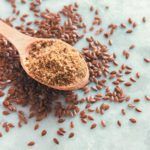Home Search
Cancer - search results
If you're not happy with the results, please do another search
Q. Ive heard that drinking lemon water can help with my acid reflux. Is...
Q. Ive heard that drinking lemon water can help with my acid reflux. Is this true?
The Impact of School Food Policies
Childhood obesity in the U.S. has more than tripled since the 1970s. According to the latest data from the Centers for Disease Control and Prevention, nearly 1 in 5 school-age children and young people (6 to 19 years) in the United States is classified as obese. Whats more, studies show that most children and adolescents dont meet dietary recommendations, and metabolic problems like diabetes and high blood pressure are showing up earlier than ever before. Eating healthier from a younger age can help prevent the onset of diet-related disease, says Renata Micha, PhD, a research associate professor at Tufts Friedman School of Nutrition Science and Policy who researches the impact of school food policies. Most of our eating habits are developed early in life. The sooner you start eating healthier, the greater the health benefits you will accrue over time.
Meeting Varied Dietary Needs
When gathering together for a holiday, or any other group event, people may bring different dietary needs to the table. In addition to varying taste preferences, individuals may have dietary restrictions for medical, religious, or even moral reasons, or they could be following a particular plan they believe will support health or weight loss. Before undertaking preparing food for a group, it can be helpful to have a basic understanding of some of the most common dietary restrictions.
Supplements and Older Adults
A recent study, published in The Journal of Nutrition, looked at nutrient and herbal supplement use in U.S. adults. The study surveyed over 3,400 people ages 60 and older between 2011 and 2014. About 70 percent of respondents reported using at least one dietary supplement over the previous 30 days, says study co-author Johanna Dwyer, DSc, RD, senior nutrition scientist with the Office of Dietary Supplements at the National Institutes of Health and director of the Frances Stern Nutrition Center at Tufts University. Older Americans may want to rethink this practice, however, since a growing number of studies have found that supplements may not have the intended health benefits. Additionally, more information is needed on potential interactions between supplements and prescription drugs.
Obesity Increases Cancer Risk
A new report from the World Cancer Research Fund (WCRF) links obesity to 12 types of cancer. The report, Diet, Nutrition, Physical Activity and Cancer: a Global Perspective, analyzed a decade of research to develop cancer prevention recommendations. The analysis found strong evidence that being overweight or obese throughout adulthood increases risk of cancer of the mouth, esophagus, stomach, pancreas, gallbladder, liver, colon, breast (post menopause), ovaries, endometrium, prostate (advanced), and kidney.
Q. I heard flaxseeds can cause side effects. Should I stop eating them?
Q. I heard flaxseeds can cause side effects. Should I stop eating them?
Q. I see carrageenan on the ingredient list of my organic almond milk. What...
Q. I see carrageenan on the ingredient list of my organic almond milk. What is this, why do they add it, and is it safe?
Fatigue in Older Adults? It’s Probably Not Low Iron
Decades ago, TV commercials for Geritol cautioned viewers about iron-poor, tired blood, helping to create a misconception that if you feel worn-out and fatigued, you could reverse it by taking an iron supplement.
The Care and Feeding of Your Immune System
There seems to be no limit to the promises on the Internet for foods and dietary supplements that allegedly boost or support your immune function. Theres more than a grain of scientific truth in it, and the prospect of enhancing immune function with nutrition is a busy area of research-some of it by scientists at Tufts Human Nutrition Research Center on Aging (HNRCA) and Friedman School of Nutrition Science and Policy.
Q Do nut butters have the same nutritional value and health benefits as raw...
Q Do nut butters have the same nutritional value and health benefits as raw and roasted nuts?



























